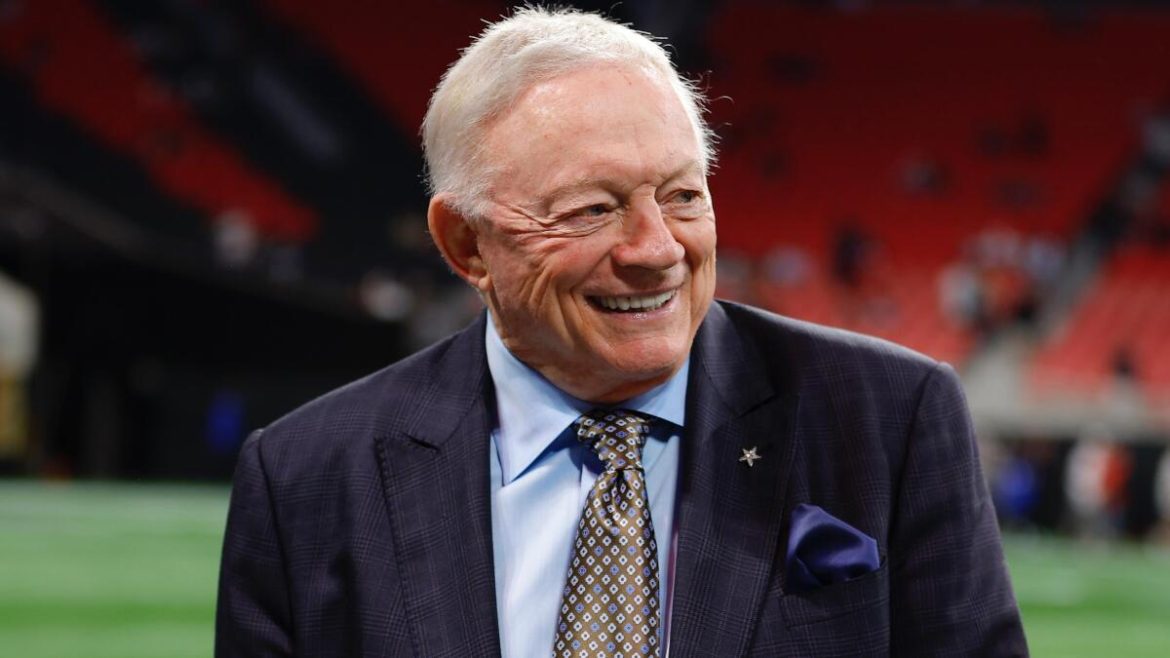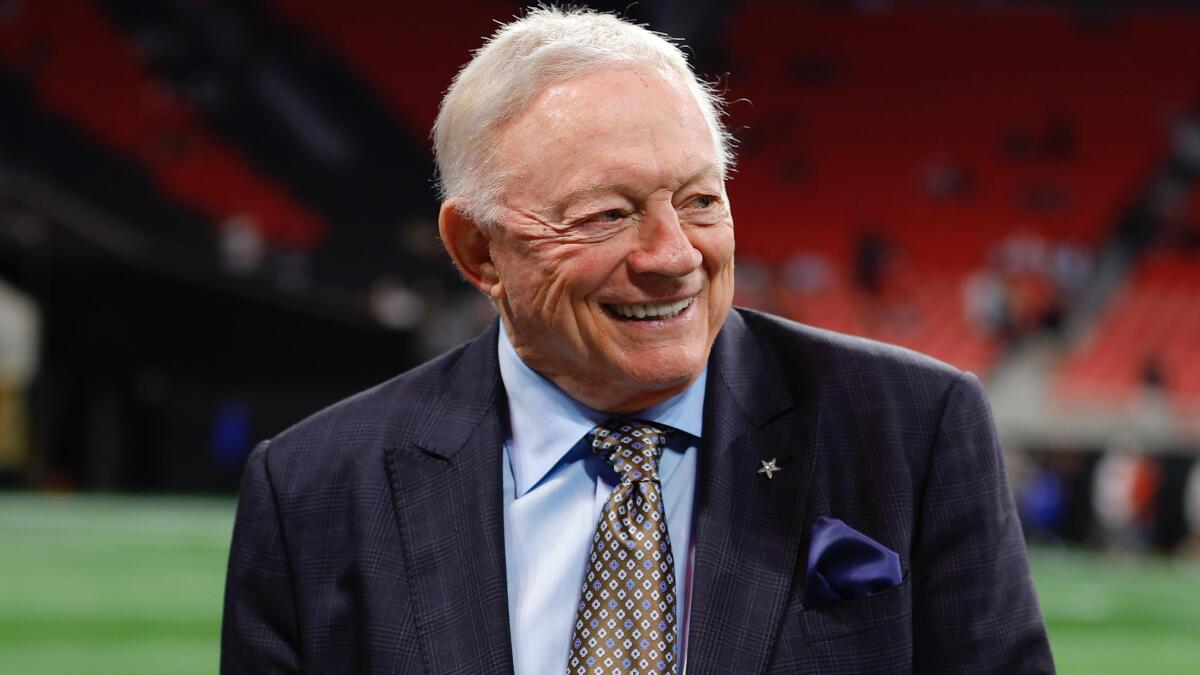The recent developments surrounding the NFL’s Diversity, Equity, and Inclusion (DEI) initiatives—particularly the decision to pause its coaching Accelerator Program—have sparked intense debate, highlighting an intersection of sports, politics, and social movements that reflects broader national tensions. With significant involvement by Dallas Cowboys owner Jerry Jones and the influence of former President Donald Trump’s anti-DEI rhetoric, the NFL finds itself in a complex position where optics and reality are at odds. This analysis unpacks the NFL’s handling of DEI efforts, the political pressure it faces, and the implications for inclusivity within one of America’s most prominent sporting institutions.
Setting the Stage: The NFL’s DEI Accelerator Program and its Pause
The NFL launched the Accelerator Program to promote diversity in coaching ranks, with a specific focus on ethnic minorities and women. This initiative intended to provide exposure and opportunity by connecting minority candidates with team executives and owners. However, after only a limited number of participants secured coaching jobs—just two documented alumni obtain employment—the league opted to “pause” the program to reassess its effectiveness. Critics argue this pause reflects a tacit admission of failure while some insiders regard it as a necessary overhaul.
The timing and context of this pause are especially significant. It comes amid escalating political contention over DEI initiatives nationwide, spurred largely by the Trump administration’s vocal opposition to corporate diversity programs. This creates an atmosphere where DEI efforts are viewed not solely through the lens of inclusion but as ideological battlegrounds.
The Influence of Political Rhetoric and Jerry Jones’ Role
Jerry Jones, owner of the Dallas Cowboys and a highly visible figure in the NFL landscape, has openly acknowledged how anti-DEI rhetoric associated with Donald Trump contributed to a heightened “awareness” within the league about the challenges facing diversity programs. Jones, a known Trump supporter—demonstrated by his substantial political donations and alignment on key issues like the national anthem protests—has provided candid reflections on the tension. He stated that the political climate, including Supreme Court rulings challenging affirmative action and Trump’s rhetoric, has made the NFL more conscious of “how divisive” these initiatives can become.
Jones’ political and personal stance adds layers of complexity to the NFL’s DEI stance. On one hand, he seems to understand the importance of diversity initiatives; on the other, his affinity with Trump’s anti-DEI messaging signals a reluctance or strategic hesitation to fully embrace such efforts in the current climate. This ambivalence is mirrored in the NFL’s actions, indicated by the simultaneous cancellation of DEI events and contradictory affirmations of commitment to diversity.
The Optics: Is the NFL Caving to Anti-DEI Pressure?
Public perception is critical here. The NFL is navigating a minefield of political and social expectations while trying to manage internal diversity goals. The recent removal of “End Racism” messages at the Super Bowl, replaced by more neutral slogans like “Choose Love” and “It Takes All of Us,” signals a subtle yet meaningful shift away from direct racial justice messaging. This move comes as the league faces scrutiny from conservatives who oppose explicit DEI-related programs and from activists demanding tangible progress.
Several media reports describe the NFL’s halt of the Accelerator Program as “reluctant,” hinting that the league is bowing, at least in part, to external pressures rather than viewing the decision strictly as a performance evaluation of the program’s outcomes. The language used—specifically phrases like “pressing pause” and promises to “[get] it right” on a reboot—feels like an attempt at damage control more than an unambiguous endorsement of DEI. Compounding this, the NFL’s announcement to cancel diversity-related events despite issuing statements in favor of progressive causes appears contradictory and fuels criticism that the league is backtracking or “caving” to political backlash.
Broader Political Battleground: Trump’s War on Corporate DEI Efforts
The NFL’s predicament is part of a wider national clash over diversity and equity initiatives championed by corporate America and educational institutions, facing pushback largely from conservative politicians and organizations. Trump’s administration sought to curtail DEI efforts on various fronts, including through executive actions and legal challenges. States have joined lawsuits opposing attempts to end diversity programs, with billions in federal funding and educational support at stake.
Businesses and leagues like the NFL find themselves in a delicate position—caught between supporting inclusive practices and navigating political narratives that frame DEI as divisive or inefficient. The NFL’s hesitation and public messaging reflect attempts to “tiptoe through a field full of mines”, balancing stakeholder demands and the reality of an increasingly polarized audience.
Jerry Jones and the National Anthem Saga: Political Symbolism in the NFL
Jones’ prominence in this controversy extends beyond diversity programs to his historically complex role in the NFL’s national anthem protests. He initially supported players kneeling but shifted hardline after Trump’s interventions, particularly emphasizing consequences for players who protest during the anthem. This indicates Jones’ tendency to align league policies with prevailing conservative sentiments, further underscoring his influence on the league’s political positioning.
This dynamic complicates the NFL’s DEI credibility, as Jones embodies the tension between upholding inclusive values and responding to conservative pressures. His public political statements and affiliation with Trump contribute to a public perception that the NFL’s DEI efforts are conditional and vulnerable to political winds.
Assessing the Path Forward: Challenges and Opportunities
The NFL’s decision to pause the Accelerator Program is a crossroads moment. The league must carefully evaluate the program’s strengths and weaknesses—beyond political optics—to revamp it in a way that genuinely advances minority representation in coaching and leadership. Skepticism abounds given prior limited success, but the NFL’s deep financial resources and cultural influence mean it could set the bar for other professional sports leagues.
However, the ongoing political polarization means any DEI initiative will be scrutinized through multiple lenses. The league’s willingness to revisit messages and programs without fully abandoning overall commitments to diversity and inclusion will be key. Transparency about program outcomes, meaningful engagement with underrepresented communities, and clear communications about the league’s values can help rebuild trust.
Conclusion: Navigating the Intersection of Sport, Politics, and Inclusion
The NFL’s current pause on its DEI Accelerator Program reflects more than just programmatic shortcomings—it exposes a league wrestling with immense political pressures, influential owners with conflicting allegiances, and a divided national landscape on diversity issues. Jerry Jones’ candid admissions about the impact of Trump’s anti-DEI stance reveal how deeply intertwined politics and sports have become.
For the NFL to emerge stronger, it must transcend mere optics and political appeasement, embracing a sincere commitment to creating opportunities for diverse coaches, staff, and players. The league’s future relevance depends on its ability to lead inclusively while navigating the volatile cultural environment—transforming challenge into opportunity for progressive change in America’s most popular sport.





